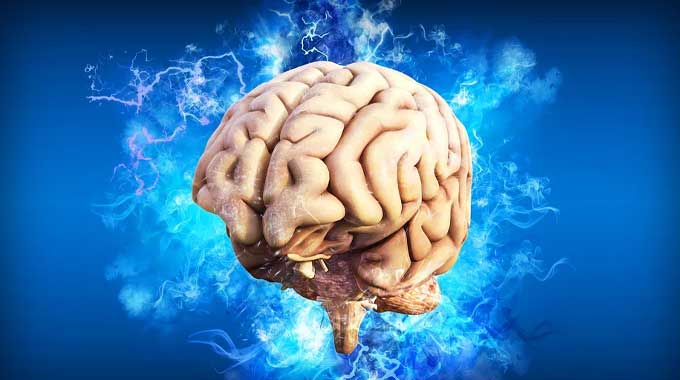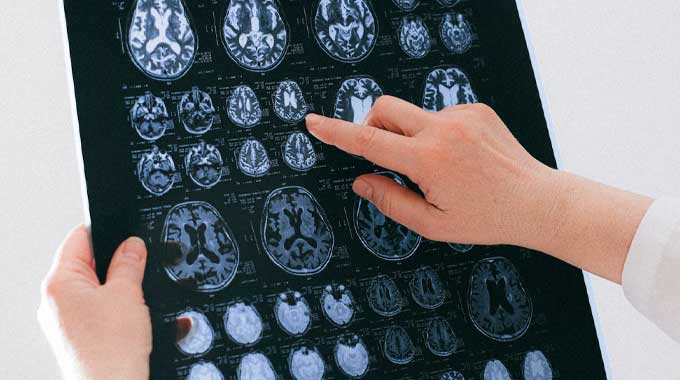Your body is subject to many emotional and physical changes throughout pregnancy. You experience an abundance of emotions and the stress of this can, unfortunately, cause you to experience depression; often accompanied by feelings of fear and anxiety. Depression is a mental health condition that affects your emotional state, inducing feelings of disconnection and sadness. At times, a somber mood is a completely normal reaction to big changes or loss, but when these depressive symptoms start to take their toll on your everyday life, a depressive disorder may be present.
- What Is Transcranial Magnetic Stimulation Tms
- Is Pregnancy A Contraindication For Tms
- Is Tms Therapy A Safe And Effective Treatment For Pregnant Women
- What Are The Contraindications For Tms
- Does Tms Therapy Cause Brain Damage
- Who Should Avoid Tms Treatment
- Can Tms Have Negative Effects
- Treatment At GIA Chicago
Many women who are living with depression during pregnancy may be hesitant to seek treatment. Antidepressant medications have a series of side effects and concerns about taking medication while pregnant or breastfeeding are understandable, however, depression can worsen over time and if left untreated, can be potentially dangerous. Transcranial magnetic stimulation offers a safe and alternative lifeline for these women.
Transcranial magnetic stimulation (TMS) has provided many pregnant women with relief from their depression during pregnancy. After hearing about this new form of treatment, you may be wondering whether you can receive transcranial magnetic stimulation during pregnancy and the effectiveness and safety of the procedure.
What Is Transcranial Magnetic Stimulation (TMS)?

Transcranial magnetic stimulation was approved by the FDA, in 2008, as effective in treating depression. TMS is a non-invasive procedure that works by delivering electromagnetic pulses to certain areas of the brain that are associated with mood regulation. The brain stimulation induced by the pulses helps reactivate certain cells and neurotransmitters, such as serotonin and dopamine, to help relieve symptoms caused by major depressive disorder or other mental health conditions.
A standard TMS therapy takes place over six weeks and requires patients to attend sessions five days a week. The procedure is delivered on an outpatient basis and lasts for around one hour, patients remain awake and the recorded side effects are minimal and typically subside shortly after treatment.
During your first TMS appointment, a medical professional will ask a series of questions to help determine the placement and intensity of your treatment. An electromagnetic coil is placed over the patient’s head which then creates a magnetic field around this specific area of the brain. Patients experience a significant decrease in depressive symptoms around three weeks after treatment and possibly sooner.
TMS was first used to treat depression but it is now being utilized to aid in the treatment of several alternative mental health conditions, such as post-traumatic stress disorder (PTSD), obsessive-compulsive disorder (OCD), and Alzheimer’s disease.
Is Pregnancy a Contraindication for TMS?

Pregnancy is not a contraindication for TMS. Many studies have shown that TMS during pregnancy has no negative effects on the baby or the mother. Pregnant women can receive the treatment and experience the benefits without any adverse side effects.
Is TMS Therapy a Safe and Effective Treatment for Pregnant Women?

TMS therapy is a safe and effective treatment for pregnant women. Multiple studies show the effectiveness and safety of treatment for women who are pregnant.
A randomized controlled trial of transcranial magnetic stimulation was carried out on pregnant women with major depressive disorder. The open-label pilot study followed 10 pregnant women throughout their TMS treatment, and they found that 70% of women responded well after 20 sessions with no presence of adverse side effects. The only negative side effects recorded were mild headaches present in four patients.
Repetitive transcranial magnetic stimulation has been effective in treating postpartum depression. Another study focused on women who were undergoing TMS for postpartum depression and found that eight of the nine women experience complete remission.
As well as being safe for patients, research has found that TMS does not cause any adverse effects on a nursing child or a fetus. A recent study, that evaluated 26 children between the ages of one and five whose mothers had received TMS during their pregnancy, found no difference between those born to women who did not have TMS therapy.
Current treatments for depression include psychotherapy and antidepressant medication, although proven to be effective, many significant risks are closely associated when medications are taken during pregnancy. Antidepressant medications increase the risk for low birth weight and preterm birth. TMS therapy allows for women’s mental health to be accounted for and treated even during pregnancy.
What Are the Contraindications for TMS?
There are two main contraindications for TMS therapy, the presence of metallic objects in the head and a history of seizures. The treatment creates a magnetic field which means that individuals with metallic objects that are placed in the head, implanted stimulators, or shunts may not be able to receive TMS. Additionally, if a patient has a history of seizures or an active seizure disorder, special consideration must be given on a case-to-case basis.
Does TMS Therapy Cause Brain Damage?
No. TMS therapy does not cause brain damage, there is no clinical evidence to suggest that it can cause brain cancer or damage.
The magnetic field that is utilized resembles an MRI machine, however, it does not reach the entire brain but only two to three centimeters under the coil and into the brain. One cause of depression is the lack of certain chemicals within the brain. The small electrical pulses activate different areas of the brain that are associated with these specific neurotransmitters, such as serotonin, dopamine, and norepinephrine. By restoring this balance individuals can experience relief in their depressive symptoms.
The magnetic pulses used are harmless and are typically the same strength as those produced by a magnetic resonance imaging (MRI) machine.
Who Should Avoid TMS Treatment?
Although a highly effective and successful option for treatment-resistant patients, TMS therapy may not be suitable for everyone. Patients should always discuss with their doctor or treatment provider to assess whether they fit the criteria for the treatment.
If you are considering TMS treatment and have the following, you should discuss it with your doctor and treatment provider:
- Have a history or family history of seizures or epilepsy
- Take medication
- Have a co-occurring mental disorder
- Have other medical conditions
- Have already been treated with TMS
- Have a brain injury
Can TMS Have Negative Effects?
TMS therapy has been found to have minor and few side effects. The most common side effect recorded is mild headaches that subside a few weeks after receiving treatment. Other mild symptoms that may occur include:
- Lightheadedness
- Scalp or neck pain
- Facial twitching
- Tingling sensations
- Sleepiness
There are no recorded risks of TMS therapy and the FDA has cleared the procedure as being safe and effective.
Treatment at GIA Chicago
GIA Chicago is a leading mental health clinic specializing in TMS Therapy. We offer a world-class treatment experience offered by a team of exceptional medical professionals. We understand that all individuals are different and our customized treatment plans and comprehensive admissions process ensure that you receive the utmost compassion and most effective care we can offer.
We offer treatment for anxiety, depression, and mental wellness. TMS therapy can be life-changing for those who are living with these conditions. To find out more about the therapy and how we can help you, contact us today.





